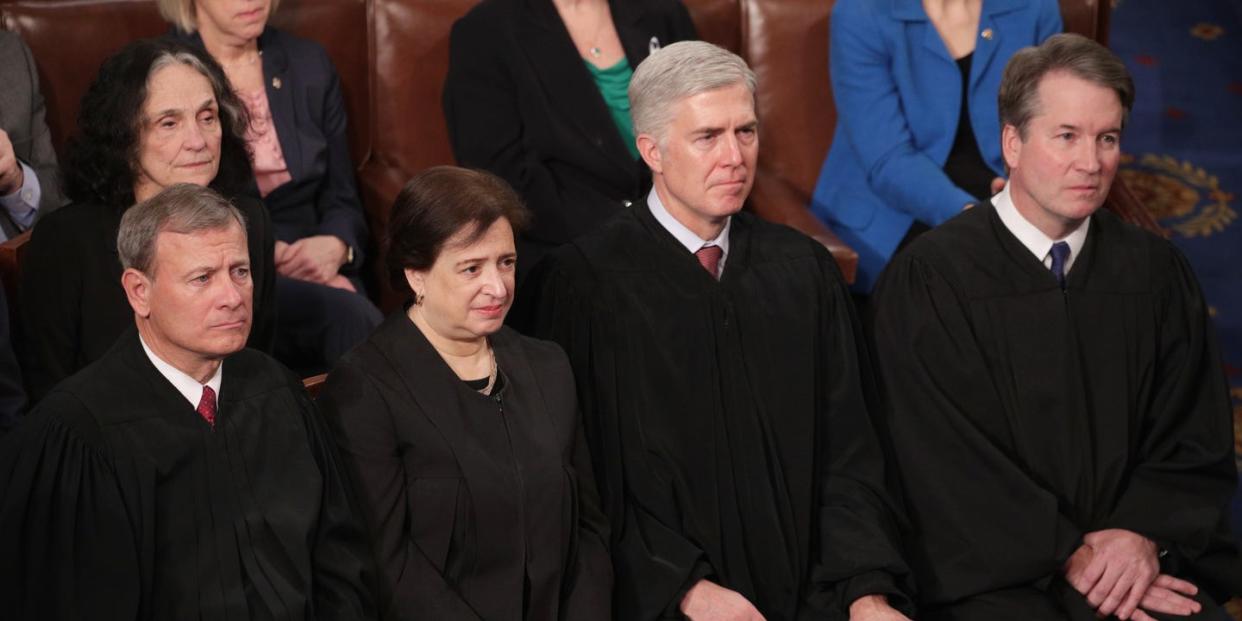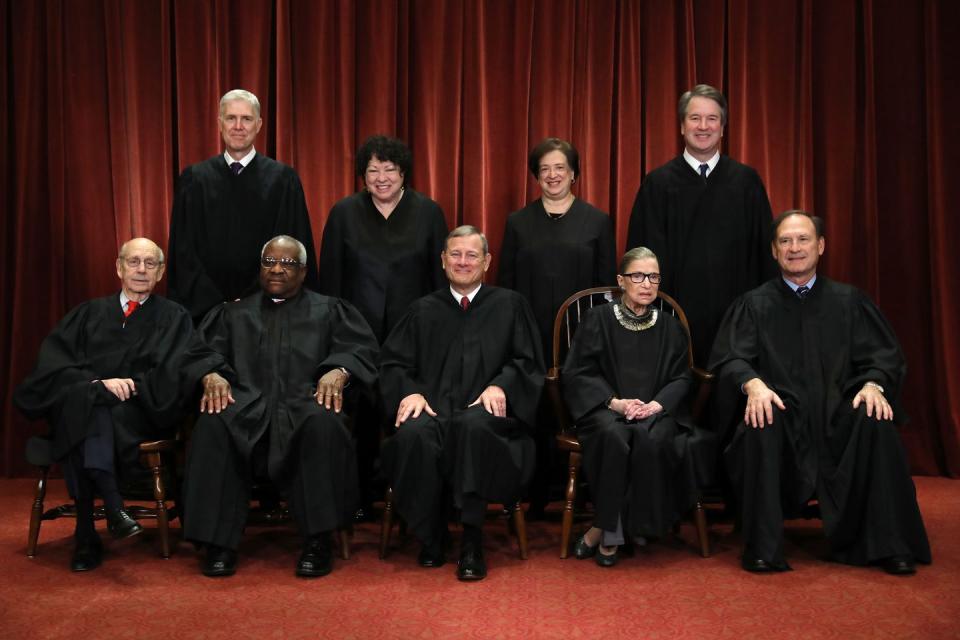The Supreme Court Just Threw the Concept of Precedent Down on the Floor and Danced on It

As this term runs down, we can expect the Supreme Court to start letting decisions fly to all points of the compass. A lot of the attention on Monday was directed at the decision handed down in Apple v. Pepper et.al., a ruling that allows a whopping anti-trust action against Apple to go forward. (Apple stock took a conspicuous dive after the ruling, which rather got lost in the noise of the whole Dow Jones turning into the skid.) The case got most of the attention because Justice Brett Kavanaugh sided with the Court's four liberal judges to allow the Court to rule, 5-4, against Apple.
The theory of the lawsuit is that Apple's 30% commission charge to app developers is often passed on to consumers - creating a higher-than-competitive price - and that competitors are shut out because Apple prevents iPhone owners from buying apps anywhere other than its App Store...Apple sought to block the lawsuit, asserting that it had not set the prices on the apps and thus the iPhone owners had no standing to sue. But the 9th Circuit Court of Appeals ruled against Apple, and on Monday the Supreme Court agreed."Ever since Congress overwhelmingly passed and President Benjamin Harrison signed the Sherman Act in 1890, 'protecting consumers from monopoly prices' has been 'the central concern of antitrust,' " Kavanaugh wrote in the majority opinion. He added, "The consumers here purchased apps directly from Apple, and they allege that Apple used its monopoly power over the retail apps market to charge higher-than-competitive prices."
Whoa, Nelly, check out the big anti-monopoly brain on Brett! He's going to love President Professor Warren.

More significant, and significantly more ominous, was the ruling from the Nine Wise Souls in the case of Franchise Tax Board of California v. Hyatt. In yet another 5-4 decision, this one with the now-customary left-right breakdown, the Court reversed a precedent dating back to 1979 that, as far as any legal observers smarter than I am could tell, never has bothered anyone in any way. In brief, the 1979 case that was reversed (Nevada v. Hall) basically held that states did not hold sovereign immunity from courts in other states. The invaluable SCOTUSBLOG has the facts of the case which, on Monday, was coming before the Supreme Court for the third time.
The case arises from allegations that Gilbert Hyatt evaded California taxes by falsely claiming to have moved to Nevada. After the Franchise Tax Board of California concluded that Hyatt owed millions in unpaid taxes, Hyatt, a citizen of Nevada, sued the board in Nevada court, alleging fraud and other torts. That litigation began in 1998. Eventually, Hyatt won a trial judgment of almost half a billion dollars - though a complex series of appeals, including two trips to the U.S. Supreme Court, have reduced the figure to about $100,000 plus the possibility of costs.
But, as should be obvious, the Court's ruling in this case is far less important than what the Court actually did in its majority opinion-it threw the doctrine of stare decisis down on the floor and danced a tarantella across it. (Scott Lemieux does a good job untangling the bad-faith hocus pocus by which the Court arrived at its decision.) As I noted, this was a stubborn case, but its ruling had bothered nobody for 40 years. In less than 20 minutes, Justice Clarence Thomas read the precedent out of the law-books. Justice Stephen Breyer, on the other hand, can see a church by daylight.
It is one thing to overrule a case when it “def[ies] practi- cal workability,” when “related principles of law have so far developed as to have left the old rule no more than a remnant of abandoned doctrine,” or when “facts have so changed, or come to be seen so differently, as to have robbed the old rule of significant application or justifica- tion.” Casey, 505 U. S., at 854–855. It is far more dangerous to overrule a decision only because five Members of a later Court come to agree with earlier dissenters on a difficult legal question. The majority has surrendered to the temptation to overrule Hall even though it is a well- reasoned decision that has caused no serious practical problems in the four decades since we decided it. Today’s decision can only cause one to wonder which cases the Court will overrule next.
So do I. And so, I'm guessing, do women in Alabama, Georgia, and Ohio.
Respond to this post on the Esquire Politics Facebook page here.
('You Might Also Like',)

